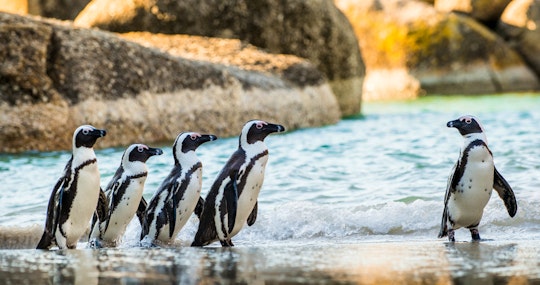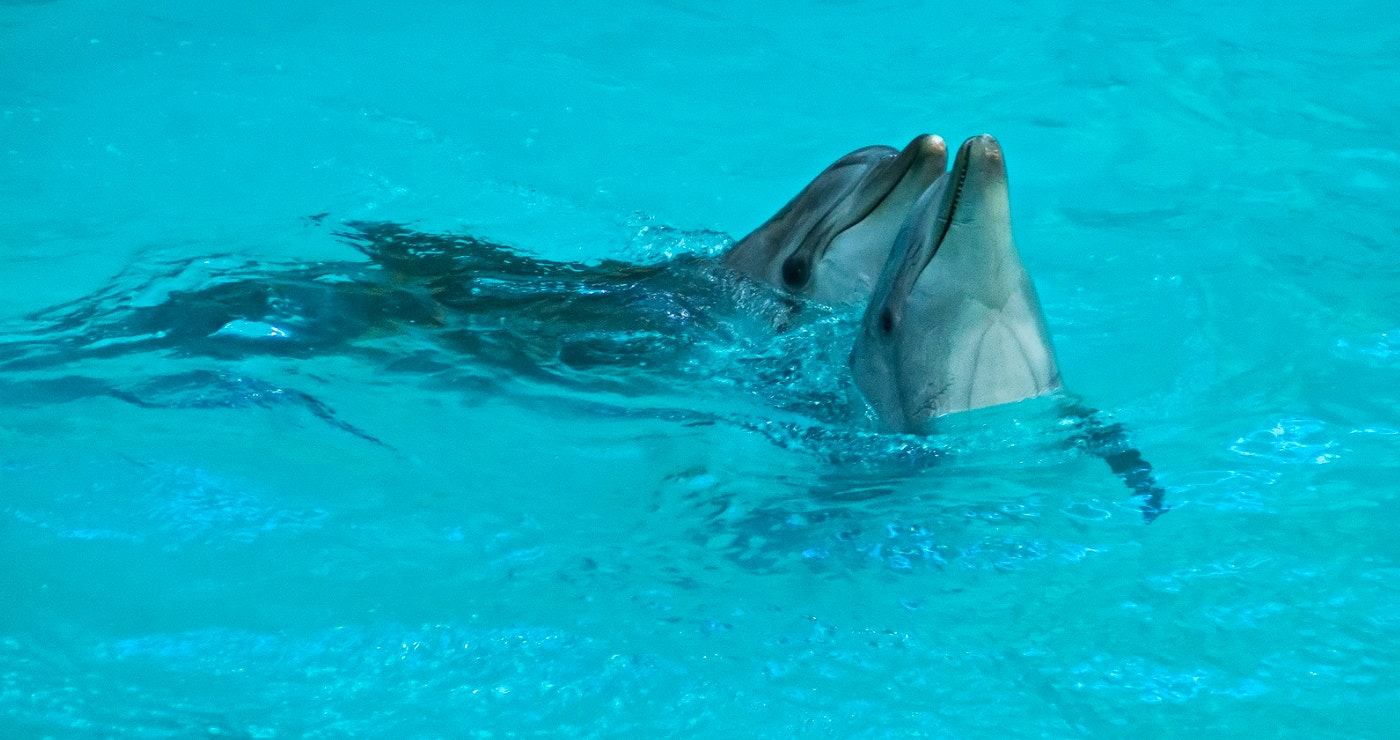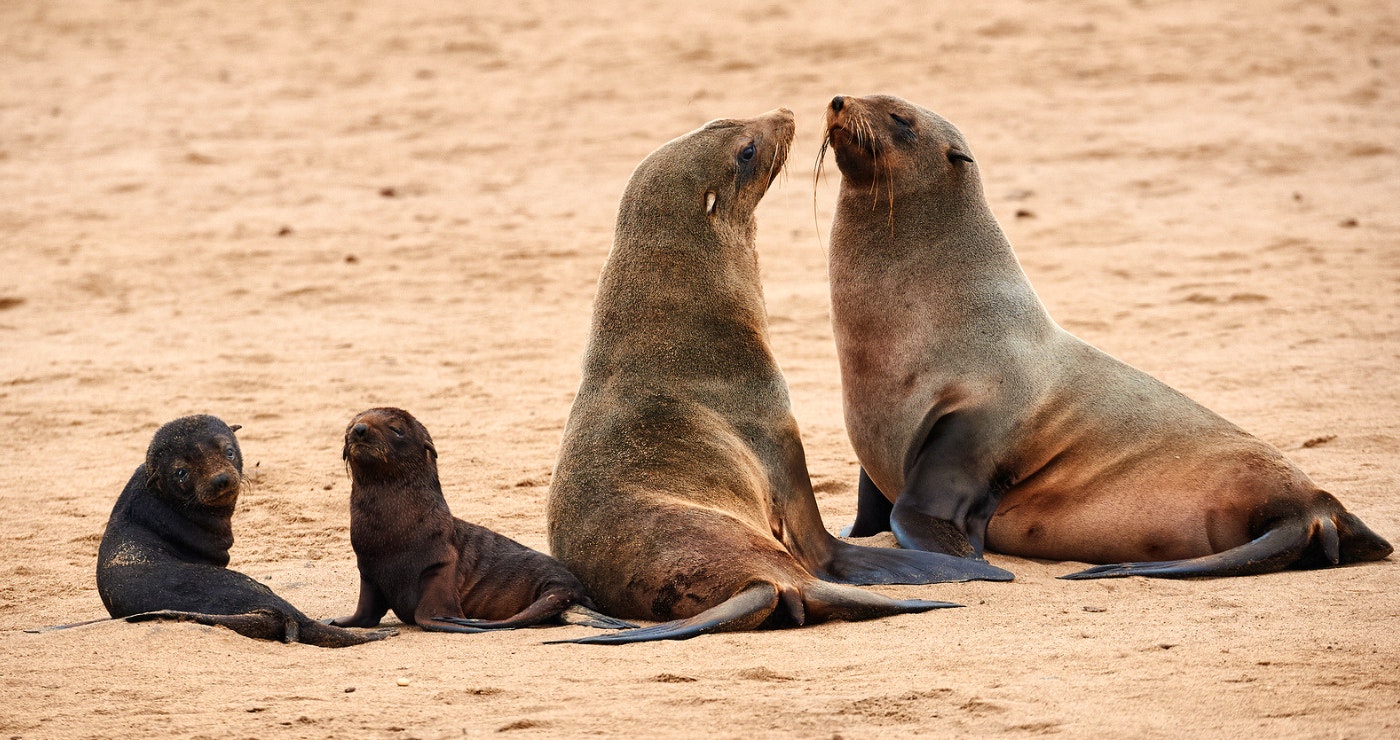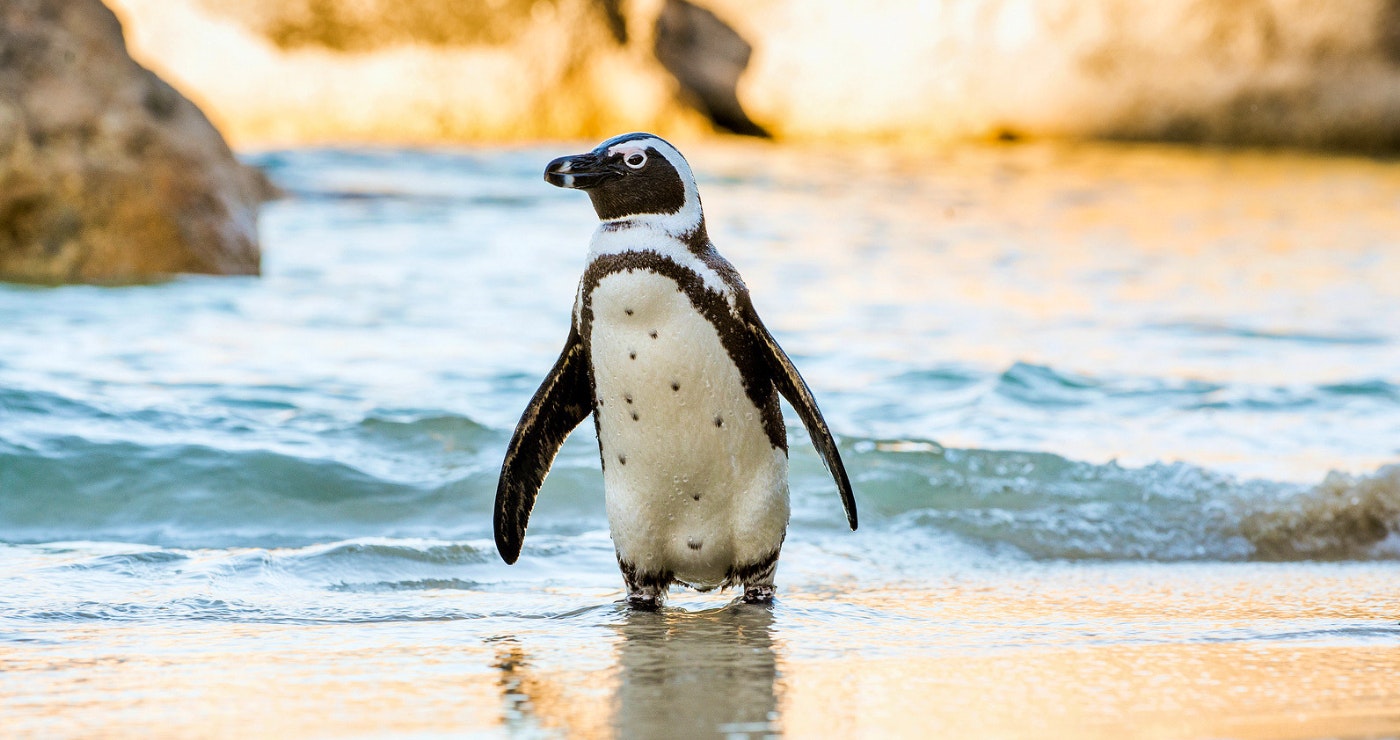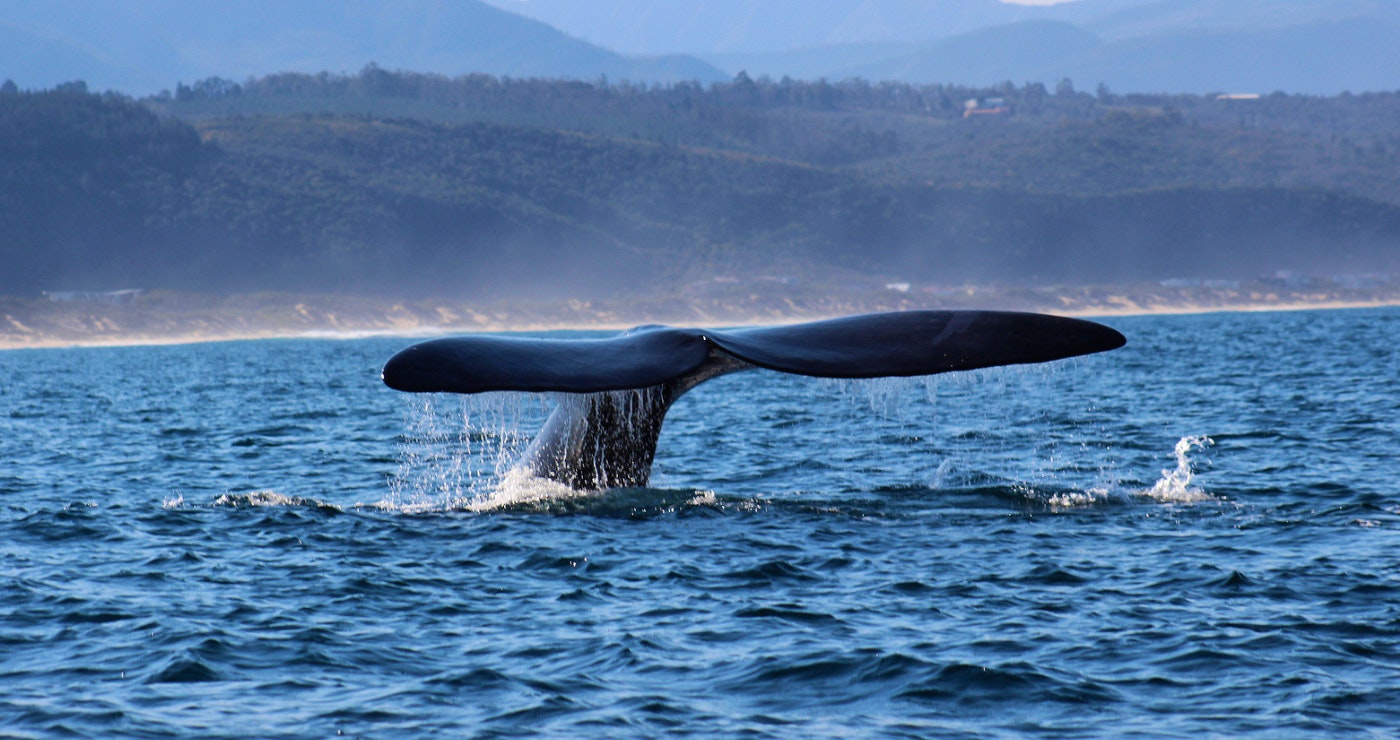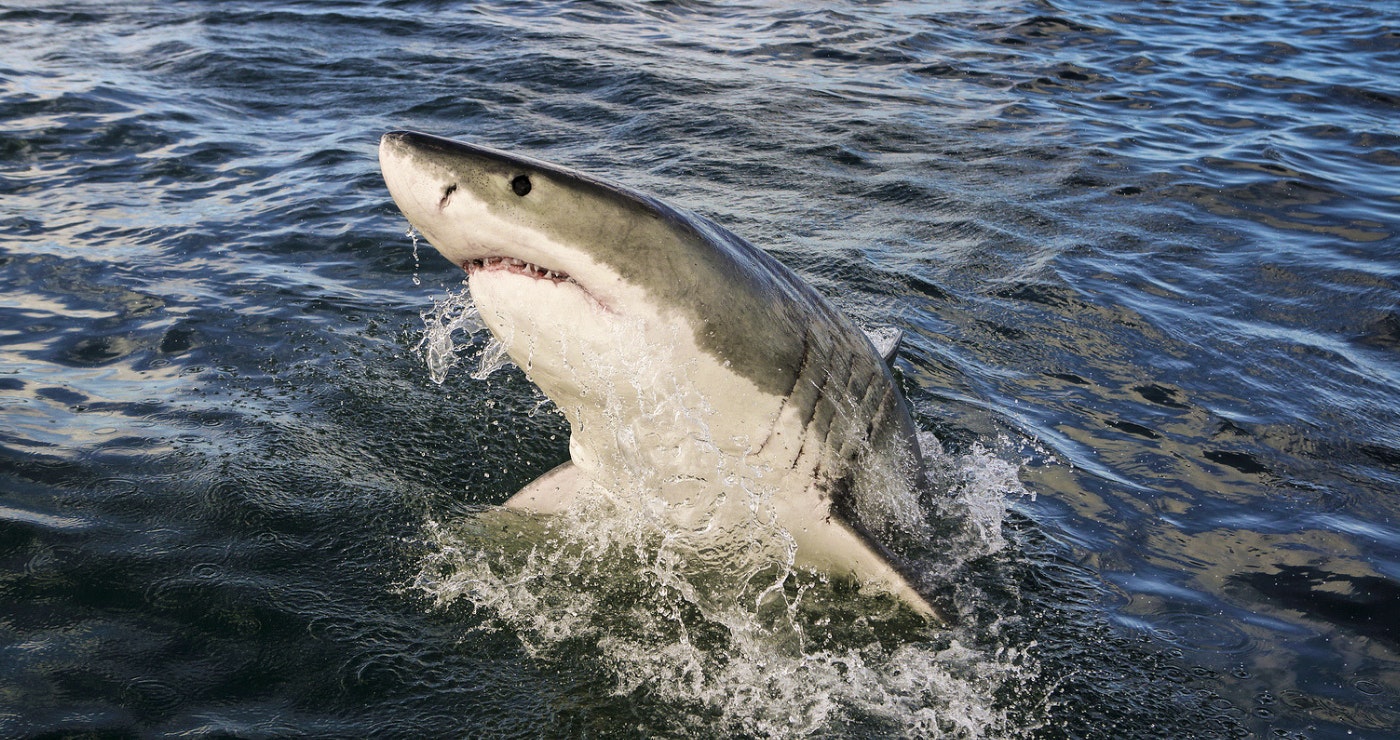We’re all familiar with the mighty Big Five roaming our game reserves and national parks, but did you know South Africa also boasts the Marine Big Five? In the light of #NationalMarineWeek, TravelGround is proud to introduce these special sea creatures!
Bottlenose Dolphin
These aquatic mammals are arguably the most popular among humans and with good reason, as their half-mooned beaks seem to be smiling permanently! They are a joy to watch as they conquer the waves, jumping up to five metres above the surf. Dolphins are very social with unique communication abilities ─ they chat to each other by making peep-like sounds and by using their body language. They also use clicking sounds to create echoes through which they determine the size and form of an object or location. Dolphins form part of the annual sardine-run phenomenon between May and July as they visibly hunt sardines along the South Coast of KwaZulu-Natal. They also frequent the Plettenberg Bay shore and you can get quite close to these friendly faces on a boat cruise.
Stay on the South Coast during the sardine run.
Cape Fur Seal
With the shores of Southern Africa as their only home, these furry, brown beasts are a sight to see as they laze for days under the African sun. Their clown-shoe flippers hamper them dearly when trying to find their way on dry land, but as soon as they plunge into the big blue, you’ll become aware of their speed and agility. Baby seals, or pups, are usually born at the end of the year and it’s during this time that you’ll often see these tiny creatures shuffling around on the cliffs at Gordon’s Bay. The largest on-land seal colony in South Africa resides at Kleinzee on the Northern Cape’s West Coast, but they are also abundant at Hout Bay and Kalk Bay’s harbours. You can even snorkel with seals at Duiker Island on the Cape’s Atlantic side.
Stay in Hout Bay to meet the harbour’s famous seals.
African Penguin
The African Penguin is only found along the coast of Namibia and South Africa up to Algoa Bay. Although penguins appear awkward waddling away on land, they are avid swimmers and divers having to travel many a sea mile to find food. To add to their adorable appearance, they mate for life by offering a pebble to their chosen partner and they can recognise their mate’s call among hundreds. Unfortunately, the African Penguin is an endangered species and SANCCOB is going to great lengths to ensure its survival. Boulders Beach in Simon’s Town, Stony Point near Betty’s Bay and St Croix Island near Port Elizabeth are some of the spots where you can admire these black-and-white feathered colonies.
Stay in Simon’s Town to visit the world-renowned Boulders Beach.
Southern Right Whale
Between June and November, whale watching is a renowned pastime along our coast as these gentle giants move to the warmer shallow waters to calve ─ expect some traffic when driving past a popular whale-watching spot! From bobbing their tails and waving their fins, you’ll definitely be in awe when spotting the largest animal on earth. And if you’re lucky, you might even witness one lunging itself into the air resulting in a gigantic splash. Because whales were previously hunted, they are endangered and that makes a sighting even more memorable. False Bay and Hermanus are sought-after whale-watching destinations with the latter annually playing host to the Whale and Calf Festival during September.
Stay in Hermanus during whale season.
Great White Shark
Each ecosystem has its top dog and when it comes to marine life, sharks are crowned number one. With 300 sharp triangle-like teeth spread over several rows, you’ll be wise to avoid them in open waters. However, there is something thrilling about getting face to face with these fearsome predators ─ safely behind the bars of a cage, of course! If you’d like to get the adrenaline coursing through your veins, you can attempt this daring adventure at Dyer Island and Geyser Island near Gansbaai, Seal Island near Mossel Bay and Seal Island near False Bay. Even though the Great White Shark is feared among most and seen all across the world, they are also endangered and in need of protection against extinction.
Stay in Gansbaai and try shark-cage diving.
How can we help our marine life?
Join a beach cleanup project.
By donating your time and energy, you can make a difference in the lives of our flippered friends.
Get educated at the Two Oceans Aquarium.
Their exhibitions and educationals will provide the whole family with the necessary knowledge about our ocean comrades.
Visit a Marine Protected Area near you.
5% of South Africa’s ocean and coastal ecosystems are specially protected for the benefit of people and nature.
Beside magnificent mountain ranges, blissful beaches and fields covered with rainbow-coloured flora, South Africa is also blessed with an amazing animal kingdom, not only on land, but in the ocean too. So, do your bit to protect and prolong their lives, enriching your own in the process!
Feature image: Bigstock

